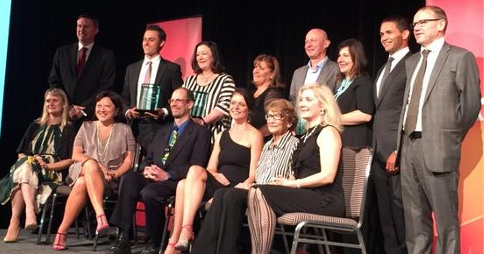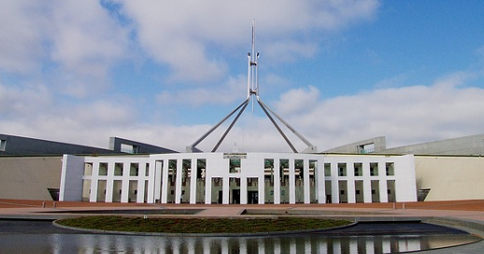Free-to-air TV
The Deafness Forum Captioning Awards 2014

Paralympic skier Michael Milton was the inspirational guest speaker at the event, which was attended by representatives from the television industry, caption providers, DVD distributors and community organisations.
Top of page
Consumers condemn proposed changes to captioning regulations
Government proposes to end caption reporting by free-to-air broadcasters
Repealing captioning red tape: Captioning of repeats on multichannels
Repealing captioning red tape: Caption quotas
Trial of audio description on ABC iview to start in 2015
The service will initially be available on iPhones, then expand to other platforms including Android, via PCs and Hybrid Broadcast Broadband TV (HbbTV) by August 2015. (HbbTV is the platform that will host the Freeview Plus service, due to be launched on 2 September.)
The trial will last for 15 months, and provide at least 14 hours of audio described content per week, with a mix of drama/entertainment, documentary/current affairs and children’s programming. Currently, the only catch-up TV service in the world to provide audio description is the BBC’s iPlayer.
Top of page
ACMA finds Nine cricket coverage breached caption quality rules
The ACMA’s standard, which came into effect in July 2013, states that captions must be readable, accurate and comprehensible. The breaches related to the pre-game segments of programs which went to air on 12 and 17 January.
Top of page
Caption reports hide great access story
Developments that benefit viewers, stations, advertisers and content providers should be celebrated and publicised. Instead the Australian Communications and Media Authority (ACMA) puts out reports that hide innovation and the power of the market to deliver more under a spirit of healthy competition.
Top of page
ACMA releases free-to-air TV captioning compliance reports
The ACMA reports show that all the commercial broadcasters exceeded their target for the year of captioning 90% of programs between 6 am and midnight. The ABC failed to reach it in one of its coverage areas (out of eight) and SBS for four coverage area (out of 12), but as these breaches were due to significant technical or engineering difficulties, the ACMA disregarded them.
Top of page






